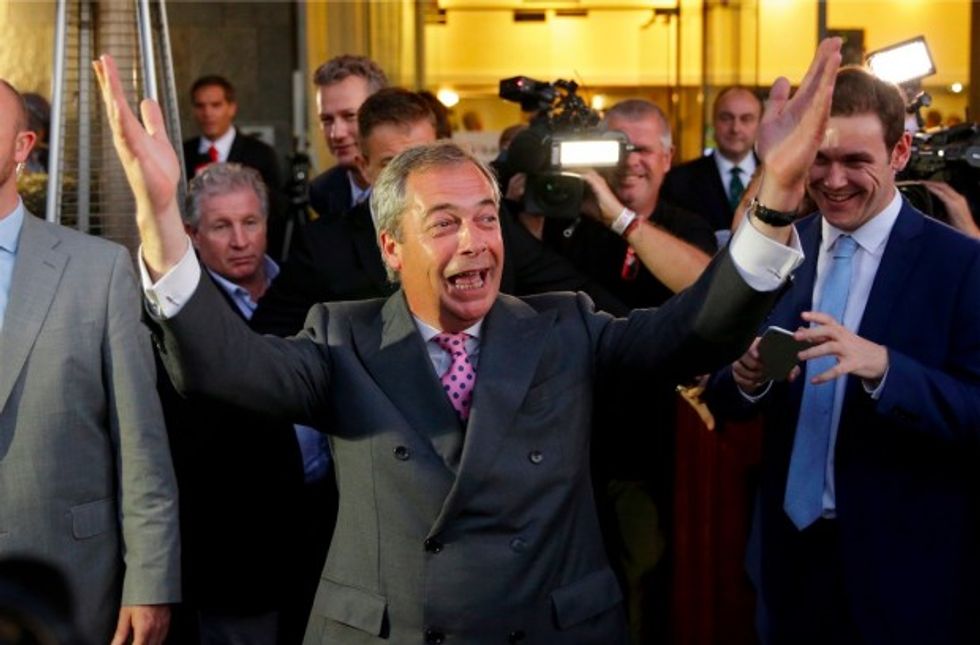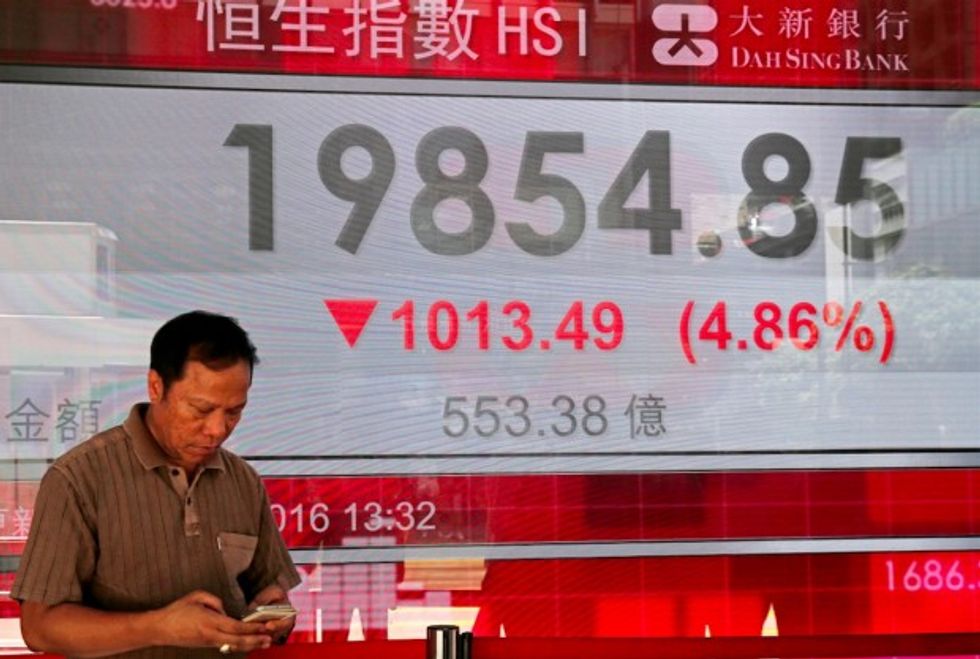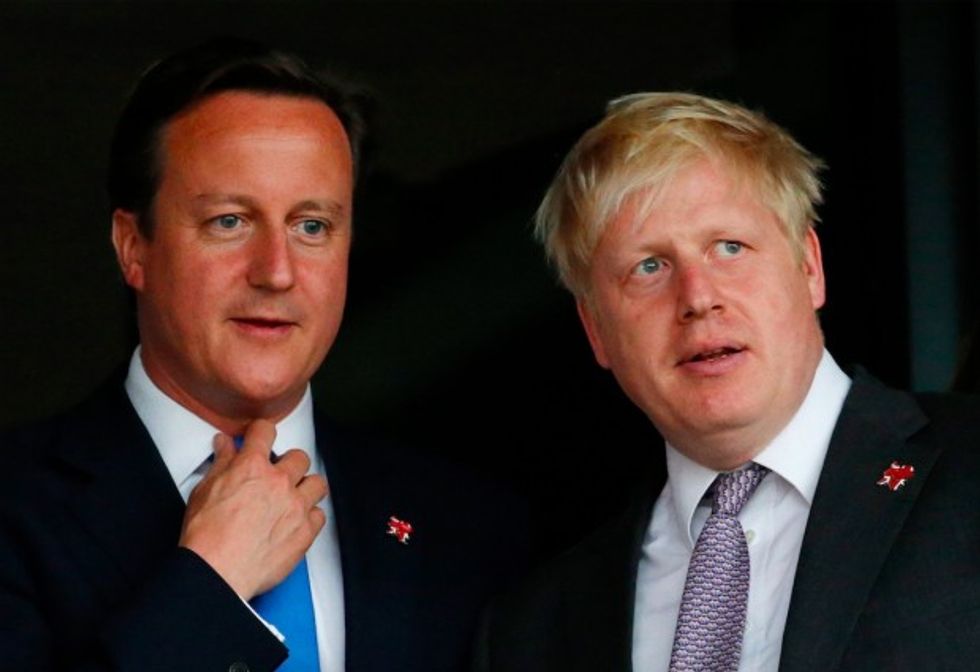
© 2025 Blaze Media LLC. All rights reserved.
“The dawn is breaking on an independent United Kingdom.”
After a divisive referendum campaign, Britain officially voted to leave the European Union — setting into motion an upset among global markets and questions of what's next.
“The dawn is breaking on an independent United Kingdom,” Nigel Farage, leader of the U.K. Independence Party, said after the historic vote. “Let June 23 go down in our history as our independence day!”
But what happens after that breaking dawn?

Economy
Following the historic vote, the pound suffered one of its biggest one-day falls in history, plummeting more than 10 percent in six hours due to fear that the break from the EU would hurt the U.K.'s economy and could undermine London’s position as a global financial center.
Authorities and financial organizations, including the International Monetary Fund, the U.S. Federal Reserve and the Bank of England, had warned that Britain’s exit would send shivers through a world economy that is only slowly recovering from the global crisis that began in 2008. Now economists will wait to see if their predictions came to pass.
However, in a piece for Forbes, Patrick Minford, a professor of applied economics at the Cardiff Business School, argued that leaving the EU would be beneficial for the U.K. economy in the long run. In fact, by leaving the EU, Britain will be able to remove tariff and non-tariff barriers erected by the EU.

Minford wrote:
So what of the scares about foreign direct investment (FDI) and job losses? These arguments are simple fallacies. FDI enters because there are returns to foreign capital in the British economy. Of course, it will continue but into the different sectors favored by world free trade. Jobs, too, will expand in these sectors to replace those lost in the previously protected sectors. With rising real wages, jobs will expand.
Yet global markets dove Friday, including futures in the U.S. In currencies, the dollar fell to 101.35 yen from 104.80 yen while the euro weakened to $1.102 from $1.132.
Leadership
Prime Minister David Cameron told reporters Friday that he would step down from his position by October, saying that he felt it would not be right for him to “try to be the captain that steers the country to its next destination.”

Former London Mayor Boris Johnson, one of the most vocal supporters of the “Leave” campaign, is prominently positioned to take Cameron’s place. Johnson, like Cameron, is a member of the U.K.'s Conservative Party.
As the Telegraph described, the process for picking the next Conservative leader is not one that is simple:
Candidates must first be nominated by two sitting Tory MPs via a submission to the chair of the 1922 committee Graham Brady.If one person is selected, they win outright. If only two people are selected by MPs, they both go forward to a wider ballot of Conservative party members, conducted by post.
If three or four members of the party are nominated as potential leadership candidates, MPs must whittle them down to two choices using a first past the post system with subsequent ballots after fourth place has been knocked out.
Then the two final choices are sent out to the wider party for the postal ballot and Mr. Brady will decide the deadline for the vote, before a count begins at noon that day.
The result is then announced to the Parliamentary party and other members.
More Referendums
The country’s move away from the EU could cause others to follow — and it could cause even more division.
Scotland’s First Minister Nicola Sturgeon said it was “highly likely” her country will face a second independence referendum as she explores options to stay with the EU.
“Scotland has delivered a strong, unequivocal vote to remain in the EU, and I welcome that endorsement of our European status,” Sturgeon said, referring to the overwhelming support the “Remain” camp got in the area.
“Scotland has contributed significantly to the Remain vote across the U.K.,” she said. “That reflects the positive campaign the SNP fought, which highlighted the gains and benefits of our EU membership, and people across Scotland have responded to that positive message.”
But in the wake of the U.K. decision, other European countries’ politicians have called for their nations to take up the issue as well, including France’s National Front leader Marine Le Pen and Dutch anti-immigration politician Geert Wilders.
Actually Leaving the EU
The U.K.'s break with the EU is unprecedented — and one that is expected to take at least a decade before it's officially completed.
In order to fully leave the EU, the U.K. must go through a series of steps, as detailed by the New York Times.
Britain first must inform the European Council that it wishes to exit before Britain and the EU negotiate the terms and conditions of the separation, terms that must be agreed upon by all sides.
As the Times pointed out, Britain and the EU have only two years to get the negotiations figured out. At the end of the two years, unless an extension is unanimously decided on by the Council, Britain will no longer be a part of the EU. If negotiations had not completed, the U.K. could miss out on some important benefits such as free trade and movement of people throughout the remaining bloc in the EU.
The Associated Press contributed to this report.
—
Follow Kaitlyn Schallhorn (@K_Schallhorn) on Twitter
Want to leave a tip?
We answer to you. Help keep our content free of advertisers and big tech censorship by leaving a tip today.
Want to join the conversation?
Already a subscriber?
more stories
Sign up for the Blaze newsletter
By signing up, you agree to our Privacy Policy and Terms of Use, and agree to receive content that may sometimes include advertisements. You may opt out at any time.
© 2025 Blaze Media LLC. All rights reserved.
Get the stories that matter most delivered directly to your inbox.
By signing up, you agree to our Privacy Policy and Terms of Use, and agree to receive content that may sometimes include advertisements. You may opt out at any time.


